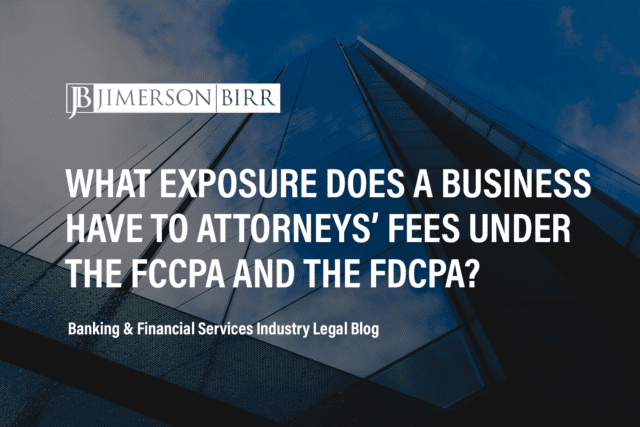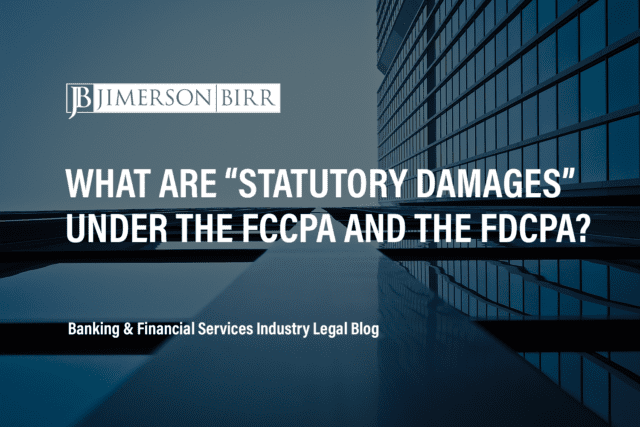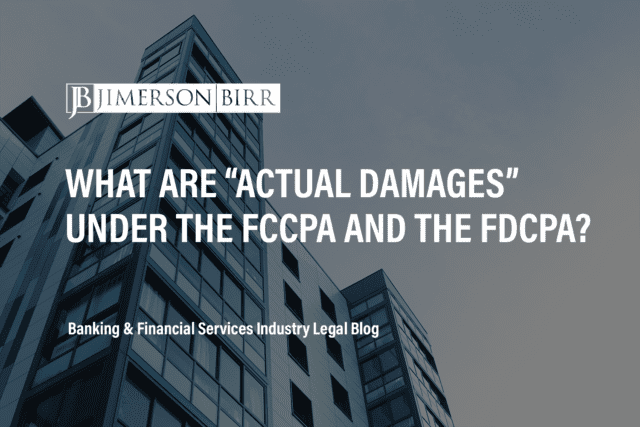In Florida, which laws and regulations apply to FDCPA violations?
Florida has enacted its own consumer protection, the Florida Consumer Collection Practices Act (FCCPA), which complements the federal Fair Debt Collection Practices Act (FDCPA). The FCCPA prohibits certain abusive and deceptive practices by debt collectors in the state. The primary difference between the two laws is that the FCCPA applies to third-party debt collectors and original creditors, while the FDCPA only applies to third-party debt collectors.
The FDCPA, codified under 15 USC § 1692, establishes standards for debt collectors regarding communication with consumers, harassment or abuse, false or misleading representations, and unfair practices. In Florida, debtors who experience violations of the FDCPA or FCCPA can seek relief under both statutes. Florida courts rely on federal case law interpreting the FDCPA when construing the FCCPA, as the Florida statute closely mirrors the federal law.
Moreover, the Florida Deceptive and Unfair Trade Practices Act (FDUTPA) also provides a basis for pursuing a claim against debt collectors who engage in unfair or deceptive practices. The FDUTPA applies to businesses, including debt collectors, and provides remedies such as actual damages, attorney’s fees, and injunctive relief for violations.
Need help regarding FDCPA defense litigation? Schedule your consultation today with a top FDCPA defense litigation attorney.
What are common violations of the FDCPA that lead to litigation?
The following issues commonly lead to FDCPA litigation:
- Harassment or abuse: Debt collectors may engage in conduct that harasses, oppresses, or abuses any person in connection with the collection of a debt, such as using obscene language or making excessive phone calls (15 USC § 1692d).
- False or misleading representations: Debt collectors may misrepresent a debt’s character, amount, or legal status or falsely imply that they are attorneys or government representatives (15 U.S.C. § 1692e).
- Unfair or unconscionable practices: Debt collectors may use unfair or unconscionable means to collect a debt, such as adding unauthorized fees or charges (15 USC § 1692f).
- Improper communication: Debt collectors may communicate with a consumer at an inconvenient time or place or contact a consumer represented by an attorney without the attorney’s consent (15 USC § 1692c).
- Third-party disclosure: Debt collectors may disclose the existence of a debt to third parties without the consumer’s consent or a court order, violating the consumer’s privacy rights (15 USC § 1692c(b)).
When a set of facts is appropriate for FDCPA defense litigation, there are many paths a claimant may take. We are value-based attorneys at Jimerson Birr, which means we look at each action with our clients from the point of view of costs and benefits while reducing liability. Then, based on our client’s objectives, we chart a path to seek appropriate remedies.
To determine whether your unique situation may necessitate litigation, please contact our office to set up your initial consultation.
What elements must a plaintiff prove for an FDCPA violation, and what are common legal defenses?
To establish a violation of the FDCPA in Florida, a plaintiff must prove the following elements:
- The plaintiff is a consumer;
- The debt is a consumer debt;
- The defendant is a debt collector; and
- The defendant engaged in conduct prohibited by the FDCPA.
Common legal defenses raised by FDCPA defendants include:
- Bona fide error: The debt collector can assert that the FDCPA violation was not intentional and resulted from clerical, calculation, or other genuine mistakes, despite maintaining procedures designed to avoid such errors (15 USC § 1692k(c)).
- Statute of limitations: The FDCPA requires that a lawsuit be filed within one year from the date of the alleged violation (15 USC § 1692k(d)).
- Debt collector exemption: The defendant may argue that they are not a “debt collector” under the FDCPA definition, such as an original creditor or a person who collects debts owed to themselves (15 USC § 1692a(6)).
Please contact our office to set up your initial consultation to see what actions or defenses may be available for your unique situation.
What are effective measures to minimize the risk of litigation?
Consider the following measures:
- Develop and maintain clear policies and procedures: Establish well-documented policies and procedures that comply with the FDCPA and other relevant state and federal regulations. Ensure that these policies are regularly updated and communicated to employees.
- Train employees: Provide regular, comprehensive training on FDCPA requirements, including updates on new case law or regulatory changes. Effective training will help ensure they understand their obligations and can conduct collection activities in compliance with the law.
- Monitor communications: Implement a system to monitor and review employees’ communications with consumers, including phone calls, emails, and written correspondence, to ensure compliance with FDCPA regulations, such as prohibitions on harassment or false representations (15 USC §§ 1692c-e).
- Maintain accurate records: Keep detailed, correct records of all collection activities, including consumer communications, payment history, and disputes. These records will help demonstrate compliance in the event of an FDCPA complaint or litigation.
- Implement a complaint resolution process: Establish a straightforward, accessible method for consumers to report FDCPA violations or disputes. Address these complaints promptly and fairly, which can help resolve issues before they escalate to litigation.
Frequently Asked Questions
- Can the FDCPA be applied to the original creditor collecting their debt?
No, the FDCPA generally applies only to third-party debt collectors, not the original creditors. Original creditors are typically exempt from the FDCPA but may still be subject to state-specific debt collection laws (15 USC § 1692a(6)).
- What are the consequences of violating the FDCPA?
Violations of the FDCPA can result in civil liability, including statutory damages up to $1,000 per violation, actual damages, and attorney’s fees (15 USC § 1692k(a)). Additionally, debt collectors may face enforcement actions by federal or state regulatory agencies.
- Can a consumer waive their rights under the FDCPA?
No, a consumer cannot waive their rights under the FDCPA. Any provision in a contract that attempts to waive FDCPA rights is considered void and unenforceable (15 USC § 1692n).
Have more questions about an FDCPA defense-related situation?
Crucially, this overview of FDCPA violations does not begin to cover all the laws implicated by this issue or the factors that may compel the application of such laws. Every case is unique, and the laws can produce different outcomes depending on the individual circumstances.
Jimerson Birr attorneys guide our clients to help make informed decisions while ensuring their rights are respected and protected. Our lawyers are highly trained and experienced in the nuances of the law, so they can accurately interpret statutes and case law and holistically prepare individuals or companies for their legal endeavors. Through this intense personal investment and advocacy, our lawyers will help resolve the issue’s complicated legal problems efficiently and effectively.
Having a Jimerson Birr attorney on your side means securing a team of seasoned, multi-dimensional, cross-functional legal professionals. Whether it is a transaction, an operational issue, a regulatory challenge, or a contested legal predicament that may require court intervention, we remain tireless advocates at every step. Being a value-added law firm means putting the client at the forefront of everything we do. We use our experience to help our clients navigate even the most complex problems and come out the other side triumphant.
If you want to understand your case, the merits of your claim or defense, potential monetary awards, or the amount of exposure you face, you should speak with a qualified Jimerson Birr lawyer. Our experienced team of attorneys is here to help. Call Jimerson Birr at (904) 389-0050 or use the contact form to schedule a consultation.

We live by our 7 Superior Service Commitments
- Conferring Client-Defined Value
- Efficient and Cost-Effective
- Accessibility
- Delivering an Experience While Delivering Results
- Meaningful and Enduring Partnership
- Exceptional Communication Based Upon Listening
- Accountability to Goals











